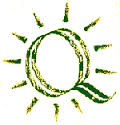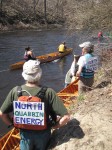 North Quabbin Energy’s 2012 “Fresh & Local Food Guide” is now available. The annual listing highlights local farms and food producers in the North Quabbin towns (Athol, New Salem, Orange, Petersham, Phillipston, Royalston, Warwick, and Wendell) and neighboring Barre and Shutesbury. Foods grown locally include fruits, vegetables, meats, grains, flowers, eggs, dairy products, mushrooms, and herbs. The brochure also lists area specialties plus non-food and “value-added” products like honey, maple syrup, local cheeses, bakery goods, hay, compost, wool and fleece, and imported fair-trade coffee. Look for information about area farmers markets, festivals, the local food co-op, “Community Supported Agriculture” (CSA) farms, and more.
North Quabbin Energy’s 2012 “Fresh & Local Food Guide” is now available. The annual listing highlights local farms and food producers in the North Quabbin towns (Athol, New Salem, Orange, Petersham, Phillipston, Royalston, Warwick, and Wendell) and neighboring Barre and Shutesbury. Foods grown locally include fruits, vegetables, meats, grains, flowers, eggs, dairy products, mushrooms, and herbs. The brochure also lists area specialties plus non-food and “value-added” products like honey, maple syrup, local cheeses, bakery goods, hay, compost, wool and fleece, and imported fair-trade coffee. Look for information about area farmers markets, festivals, the local food co-op, “Community Supported Agriculture” (CSA) farms, and more.
Eating locally is an energy-related issue because the food industry in the U.S. is based on energy-intensive modes of farming, processing, shipping, and storing food. Produce and other foods are typically shipped over hundreds of miles from the source to the consumer, adding to the “carbon footprint” of products that are usually grown with petroleum-based fertilizers and pesticides. Buying closer to local sources not only reduces the energy required to grow and ship food, but helps support area farmers and food producers who are working to strengthen more sustainable regional food systems.
The 2012 “Fresh & Local” brochure is available in locations throughout the area, including libraries and general stores, town offices, and many of the farms and businesses listed in the guide. You can also download it here as a PDF file.










